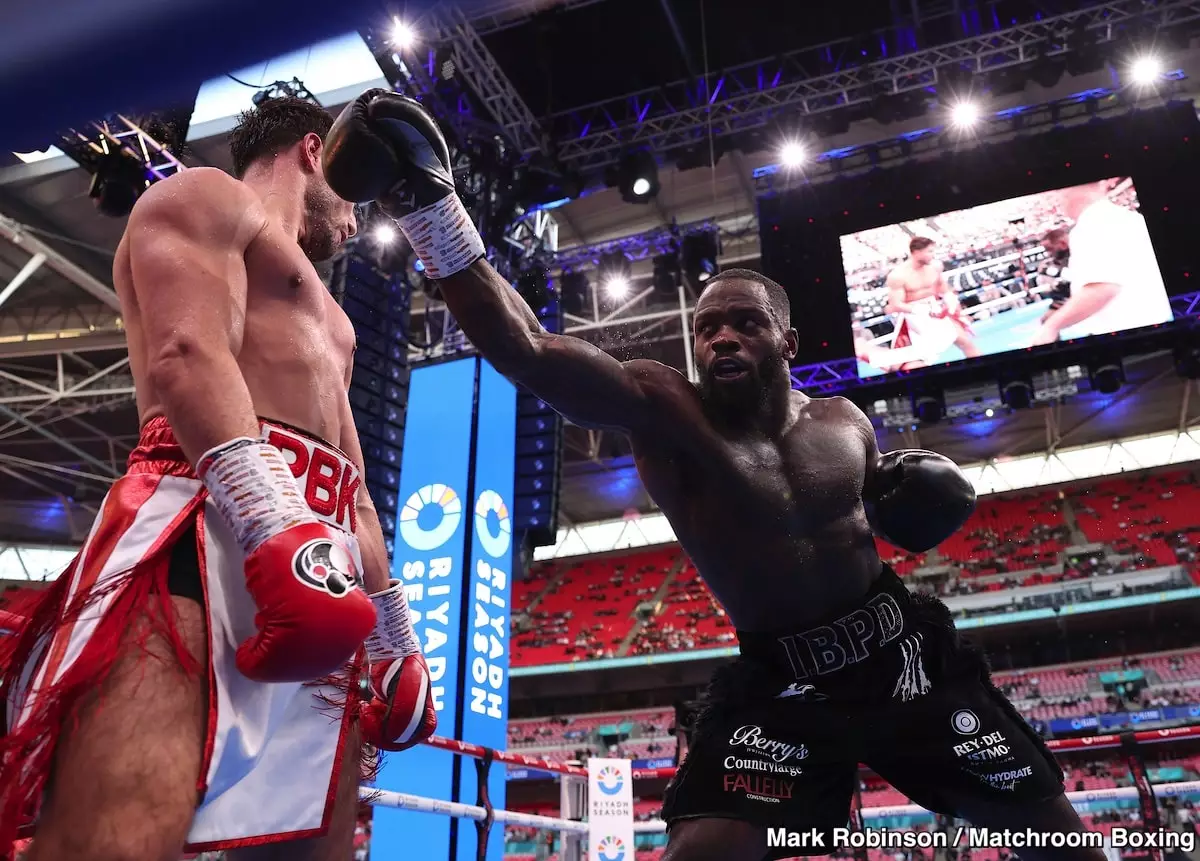The world of professional boxing is often fraught with unexpected twists and turns. A prime example of this unpredictability surfaced recently when Eddie Hearn announced that Israil Madrimov, the rising star in the junior middleweight division, had to withdraw from his much-anticipated fight against Serhii Bohachuk. This decision was attributed to Madrimov’s serious medical condition—acute bronchitis—that rendered him unfit to compete. In a sport where athletes often fight through injuries, the validation of Madrimov’s health issue reinforces the critical importance of fighter well-being and the realities athletes face both inside and outside the ring.
Madrimov’s situation is emblematic of the physical and psychological demands placed upon professional boxers. Despite the lure of fame and financial reward, fighters often find themselves battling illness or injury while undergoing rigorous training regimes. Hearn emphasized the authenticity of Madrimov’s condition, stating, “He went to the hospital. He hasn’t been well.” Such candid acknowledgment serves not only to quell any conspiracy theories regarding the fighter’s withdrawal but also highlights the ongoing fight for transparency within the sport.
Moreover, with boxing being a highly competitive environment, the pressure to perform can sometimes overshadow individual health concerns. Hearn’s remarks about Madrimov’s desire to fight illustrate a problematic culture prevalent in many sports—the inclination to prioritize competition over well-being. The boxing community must rally for better understanding and advocacy around fighters’ health, ensuring their well-being takes precedence when conditions such as bronchitis arise.
With Madrimov out, the spotlight shifted swiftly to Ishmael Davis, who has been selected to step in against Bohachuk for the Riyadh Season card taking place on December 21st. Davis, a fighter with a record of 13 wins and 1 loss, has proven his tenacity by previously taking a fight on short notice against the well-regarded Josh Kelly, although he ultimately lost that bout by decision. Hearn acknowledged the decision to bring Davis on board, noting that “His Excellency loves Ishmael Davis.”
This indicates that Davis’s willingness to seize opportunities has not gone unnoticed—marking a significant moment in a fighter’s career that could change his trajectory dramatically. It’s important to recognize the depth of this opportunity; stepping in to fight a formidable opponent like Bohachuk carries risk, yet it opens the door for Davis to elevate himself within the boxing ranks.
However, the timeline for Davis presents a challenge. He is coming into the match with just a couple of weeks to prepare against a powerful puncher like Bohachuk. Hearn acknowledged the potential pitfalls, saying, “He wasn’t really in camp” during his last fight. Davis’s previous encounter illustrated his struggle against a sharp opponent, raising questions about how he will tackle a fighter known for their knockout power on such short notice. His performance will be pivotal in determining whether he can capitalize on this golden opportunity despite the glaring disadvantages.
The boxing community has often romanticized the concept of the underdog facing seemingly insurmountable odds. Davis’s situation is a vivid representation of that narrative, yet it is critical to consider the hard realities he faces. It is a story of determination and ambition, but also one framed within the high stakes and potential repercussions of the sport.
Interestingly, Hearn remarked on how Davis could fundamentally change his life through this fight, suggesting that a victory might lead to lucrative opportunities in the future. “If he goes out and beats Bohachuk, guess what? In his next fight, he’s going to make seven figures,” Hearn declared. This pay-off demonstrates the financial potential that exists in professional boxing, particularly for those who can rise to meet challenges head-on despite adversity.
Nevertheless, the financial applause should not eclipse the reality that far too many fighters remain in obscurity, battling for modest purses. Davis’s story may be inspiring, yet it underscores systemic issues within boxing that need addressing to ensure that all athletes are equipped with the same opportunities to succeed.
The realm of boxing is ever-evolving, punctuated by critical health decisions, emergent talents, and the pursuit of financial security. As fans await the December bout, one can only hope that the lessons learned from Madrimov’s withdrawal will resonate throughout the sport, cultivating a culture that respects and prioritizes athlete health while honoring those like Ishmael Davis who seize the moment, come what may.

